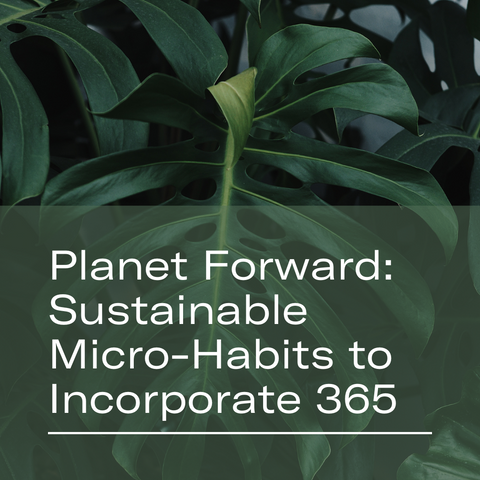Hey Beauties!
What better time to do a self wellness scan than during Mental Health Awareness month? Are you good? How does your body feel - Physically? Mentally? I think we could all be living a little softer, a little slower. I’ve been grappling with daily struggle lately—feeling scattered, disorganized, and unfocused had become the norm. The weight of everything on my To-Do list was leaving me stressed out and overwhelmed, and by day's end, I was overstimulated but still far from feeling productive. Can anyone relate? I’ve put together a list of questions you can ask yourself in doing your own self-wellness scan. It’s a living list so it has changed over time but it always brings things into perspective for me and helps me quickly identify where I need to focus.

I had a lot of red flags when I did my self-scan last month and I knew some things needed to change. I attributed this chaos to perimenopause—low estrogen, high cortisol—and it's sent my ADHD soaring to new heights. Reflecting on times I felt really in flow, I thought about how I managed to research and write my dissertation daily for three continuous years. One standout realization hit me: during those years, I 86ed TV (not intentional, just super locked-in). Facebook, then still a fledgling platform, served its social purpose without consuming me and the majority of phone use was talking and texting. Contrast that with today's digital vortex—social media, emails, texts, podcasts, YouTube, streaming services like Netflix, Hulu, Prime, Max—I’m clocking in an average of 7 hours daily just on my phone.
Reflecting on my phone addiction and its direct impact on my focus, overwhelm, energy levels, and constant rumination, I couldn't help but draw a connection between my digital dependency and the decline in my overall well-being. This realization led me back to the concept of Soft Life—a notion crafted to counteract the frantic pace and digital overload that define our modern lives.
The term "Soft Life" refers to a lifestyle focused on simplicity, mindfulness, and balance, often characterized by activities that promote well-being and authentic connection, away from the constant distractions of modern technology. Nigerian influencer Tunde Ednut is credited with popularizing the concept of Soft Life. As we navigate the complexities of the 21st century, Soft Life is a call to revisit the essence of balanced living, blending Gen Z's emphasis on self-care and mental health advocacy with Gen X's innate ability to embrace free play and resourcefulness.
For Gen Xers, especially, Soft Life strikes a chord of familiarity, harking back to a time when living with intention and finding joy in simple pleasures was the norm.
Soft Life embodies the essence of coming of age in the '80s and '90s—an era of reading, journaling, playing with makeup, and basking in the sun, sans digital distractions. It evokes memories of screen-free summers, corded phone conversations with friends, and endless reruns of A Different World. We reveled in beach days, game nights, and creative hobbies, losing track of time without constant connectivity. Soft Life feels like a return to carefree girlhood—spontaneous, creative, and exploratory. I want to get back to that.
But embracing Soft Life requires conscious effort in today's hyperconnected world. I've embarked on a journey to slash my screen time from a staggering 7 hours to a manageable 3 hours a day, including streaming indulgences (does it count double if I’m doing both at the same time? 👀). Here are the strategies I'm implementing to rediscover balance:
- Phone Detox: Keeping my phone in a designated box for extended periods, reclaiming intentional screen time. I bought a phone box for the family…I’ll report back!
- Scheduled Social Media: Allocating specific times for social media usage and tracking my interactions.
- Daily Reading and Writing: Nurturing my mind through regular reading and journaling sessions.
- Physical Activity: Incorporating daily movement, be it pilates, walks, or outdoor activities.
- Mindfulness Practices: Embracing daily meditation for mental clarity and focus.
- Reduced Stimulants: Limiting caffeine intake to maintain a balanced energy level.
- Moderated Indulgence: Cutting back on alcohol consumption for overall well-being.
- Digital Detox Days: Designate specific days or weekends for a complete digital detox. Disconnect from all screens, including phones, computers, and TVs, and engage in offline activities like nature walks, board games, or creative hobbies.
- Limiting Notifications: Customize your phone and app settings to limit notifications. Minimize distractions by only allowing essential notifications, such as calls or urgent messages, to come through during specific times.
- Tech-Free Zones: Designate certain areas in your home as tech-free zones, such as the dining area, bedroom, or relaxation spaces. Keep these areas free from electronic devices to promote mindfulness and reduce screen time.
That seems like a lot to incorporate but my biggest focus is intentional screen time because the less I’m on my phone, the more I can be present, productive and free up time to do all of the things. Soft Living isn't about regressing but about reconnecting—with ourselves, our passions, and the present moment. It's a deliberate step towards reclaiming our time, attention, and mental well-being in a digitally saturated world. I’m excited to redefine what it means to truly live in the moment for me and I will be reporting back weekly to let you know how it’s going, what’s working, and what’s not. In the meantime, I would loved to hear if any of this resonates with you and what things you’re doing for your mental health.
Xx, Mia




Comments (0)
There are no comments for this article. Be the first one to leave a message!